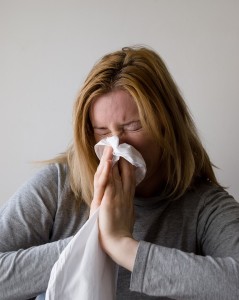Do Antibiotics Increase Allergies and Asthma?
Growth of Yeast in Digestive System May Be to Blame
University of Michigan researchers claim that antibiotics alter intestinal microflora and can lead to changes in the entire immune system. The findings were presented a few years ago at the annual meeting of the American Society for Microbiology, but we feel they are worth repeating.
Antibiotics play a big part
Mice were first given antibiotics, and then given yeast fungus to create a fungal colony in their digestive tracts. The lead researcher, Gary Huffnagle, described the lungs of the treated mice as “shredded,” making them unable to breathe.
Antibiotics increase the growth of the yeast Candida albicans in the gut, Noverr explains. It is a common side effect of antibiotic use and previous studies show that this change in the gut could increase allergies.
“Over the past four decades there has been an explosive increase in allergy and asthma in westernized countries, which correlates with widespread use of antibiotics …,” said researcher Mairi Noverr, with the University of Michigan in Ann Arbor, in a news release.
How do you treat Candida in your Digestive System?
Besides an increase in allergies and asthma, an abundance of Candida can also cause the following symptoms:
- Exhaustion
- Cravings for sweets
- Bad breath
- White coat on tongue
- Brain fog
- Hormone imbalance
- Joint pain
- Loss of sex drive
- Chronic sinus and allergy issues
- Digestive problems (gas and bloating)
- Weak immune system
- UTI
For more information on how to treat Candida Overgrowth Syndrome (COS) check out this article.


No comments yet.